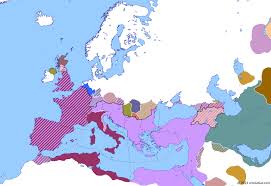
Introduction
Europe is a continent rich in history, diversity, and culture, but it currently faces a multitude of challenges that are reshaping its socio-economic landscape. From the ongoing impact of the COVID-19 pandemic to geopolitical tensions, climate change, and the economic repercussions of the energy crisis, events occurring across Europe are of global significance. Understanding these issues is not only crucial for policymakers but also for citizens and businesses alike.
Economic Challenges
As of October 2023, Europe’s economy is still recovering from the shocks of the pandemic. Inflation rates have surged in several countries, largely driven by rising energy prices and supply chain disruptions. The European Central Bank is under pressure to manage these inflationary trends while fostering economic growth. For instance, countries like Germany and Italy are implementing measures to stimulate their economies, yet face concerns over a potential recession.
Geopolitical Tensions
The ongoing conflict in Ukraine continues to significantly affect Europe. NATO’s response to the crisis has been a focal point, as member states provide support to Ukraine while also grappling with energy dependency on Russian supplies. This situation has led to discussions among European leaders on how to achieve greater energy independence, with many advocating for a shift towards renewable sources. Additionally, the UK and EU are still navigating the consequences of Brexit, particularly concerning trade agreements and immigration policies.
Climate Change Initiatives
Europe remains at the forefront of climate action globally. The European Union has pledged to become the world’s first climate-neutral continent by 2050, which involves significant investments in green technology and sustainable practices. However, achieving this goal comes with its challenges, particularly amid rising energy demands and the need to transition away from fossil fuels. Countries are implementing various initiatives, including enhancing renewable energy infrastructure and promoting electric vehicles to reduce carbon footprints.
Social Changes and Migration
Social dynamics in Europe are also evolving due to migration patterns. The influx of refugees from conflict zones and economic migrants has sparked debate over integration policies and social cohesion. While many European nations strive to create inclusive policies, there are rising concerns about social tension and public sentiment towards immigration.
Conclusion
The current events in Europe serve as a reminder of the continent’s interconnectedness and the various challenges that lie ahead. As nations work towards economic recovery, energy independence, and climate goals, it is essential for both governments and individuals to stay informed and engaged. The path forward may be fraught with difficulties, but proactive measures and cooperation can lead to a more resilient Europe in the years to come.
You may also like

Understanding the Current Political Landscape in the UK

The UKIP Party: Recent Developments and Future Outlook
